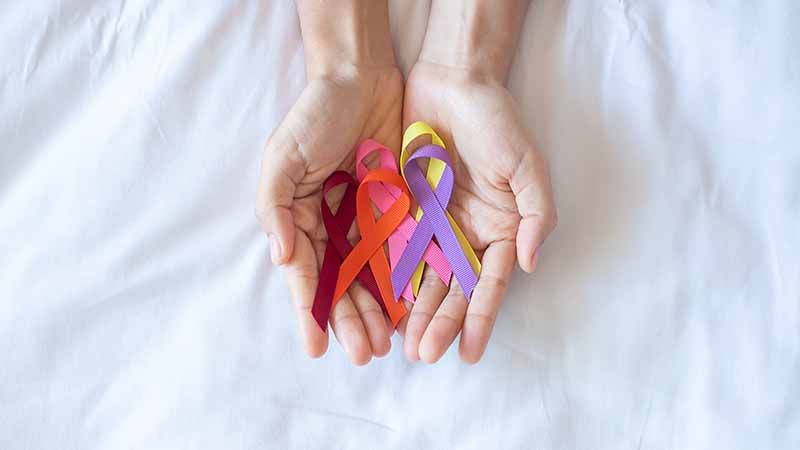Cancer: Early Detection, Diagnosis, And Treatment
46 months ago

According to WHO cancer is a form of the disease that emerges from the growth of “abnormal cells” in any organ or tissue and then spreads to other parts of the body hampering the smooth functioning of the part. Statistics indicate that cancer, in 2018, caused an estimated 9.6 million deaths globally. However, the disease is curable if detected at the right time. When symptomatic patients detect cancer early it is easier for the treatment to show better results. Many countries are focusing on combating cancer by focusing on cancer diagnosis as an important public health strategy and as a method of raising cancer awareness.
One of the initial steps is to recognize the early symptoms of cancer. Listed below are some of the common symptoms, and a doctor should be immediately contacted for timely cancer detection.
Early symptoms of cancer
- Consistent tiredness that doesn’t get better with rest is a matter of concern. This usually happens because of what is known as “nutrient theft” since cancer cells are not allowing nutrients to rejuvenate and recharge your body.
- Unexplained persistent pain in a particular region can also be an indication of the presence of cancer in the body or the development of it. This could be because of a tumor of the chemicals that the cancer cells release. This could also be because of Metastasis, the process of the spreading of cancer from the place of its origin to the rest of the organs/body.
- Visible changes such as a change in skin color or growth of moles in a particular area or moles in irregular shapes.
- Cancers can also cause your body temperature to rise like any other infection, therefore it is suggested that you consult your doctor if the fever persists for more than 3 days.
- If you find blood in stool, urine, or cough, immediately contact the doctor. The blood can be an indication of the presence of a stomach ulcer, kidney issue, or trouble with the lungs.
Family History and Cancer
Cancer can run in certain families for reasons such as similar lifestyles or genetic issues like obesity. It is however also caused by the presence o an abnormal gene that is passed on genetically to the coming generations. Abnormal genes are an outcome of a gene mutation that can affect the functioning of a gene, or even completely stop it.
Various factors can contribute to the presence of cancer in the family. Identifying certain indications that point to the presence of the vulnerability to cancer can help one inculcate certain changes accordingly which might, in turn, lower the risk. Some of them are
- Presence of the same kind of cancer in family members
- Sex-specific cancer which does pertain to that particular sex, for example, breast cancer found in male sex
- Development of cancer at an early age. According to the American Cancer Society, if a close relative under the age of 30 is diagnosed with colon cancer then it is most likely to be an inherited cancer syndrome.
Tips to prevent cancer
One of the most fundamental aspects of cancer awareness is the practice of a “prevention better than cure” policy. Listed below are certain tips, changes, and advice that you can introduce in your life to prevent cancer or lower the likelihood of it.
- Regular health checkups and tests help to detect cancer early. It also allows you to be more aware of your body so that you can avoid things that can trigger the growth of abnormal cells.
- The power of science has contributed significantly to cancer awareness. We now have various vaccines for cancer. Get vaccination shots for the cancers that can be avoided through vaccines such as cervical cancer or liver cancer.
- Your lifestyle is a major contributing factor to your health. A poor lifestyle can cause all sorts of complications in the body and might trigger developments of cancer or tumor, especially in people more vulnerable to these fatal diseases. Inculcate a better diet in your everyday life. Increase the consumption of fruits and reduce fatty food. If you choose to drink alcohol, make sure the consumption is moderate and regulated.
- Recent studies have shown that exercise can be a means to prevent cancer. It reduces inflammation, maintains blood sugar, maintains a healthy heart rate, regulates the sex hormones, and keeps your mind and body up and about. The importance of exercise has been brought to our attention very recently and is even recommended to people recovering from cancer treatments.
- One of the things that we often take for granted is the power of the sun. While we all love a warm winter afternoon directly under the soon, one cannot afford to forget the fact that the sun is not necessarily your best friend. Use SPF regularly during the day, try to stay in shade, and cover well if you step out on hot midday.
- Practice safe sex. Contraceptives like condoms not only protect from unwanted pregnancy but also sexually transmitted diseases, which can often act as trigger points for cancer. Also, avoid the insertion of an unknown object in any part of your body.